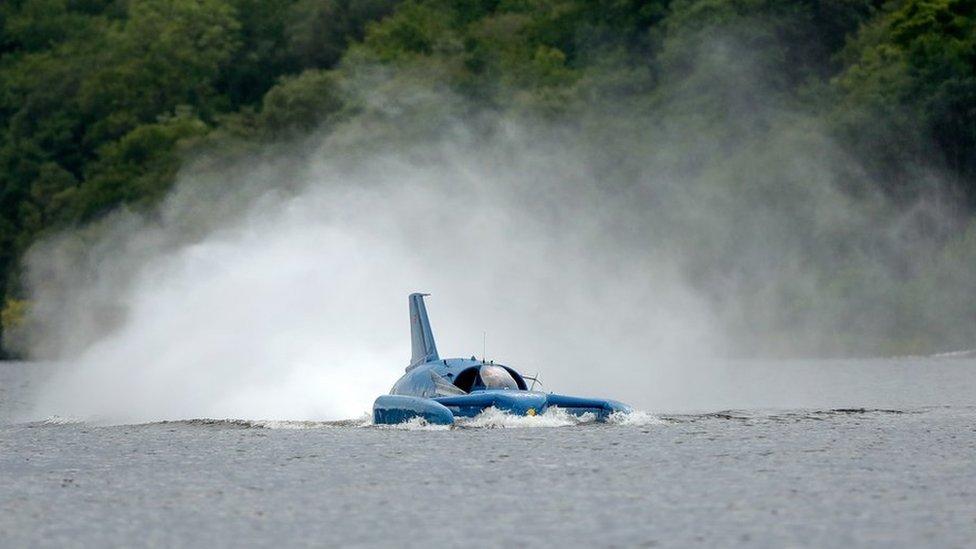Bluebird: Museum aims to run Donald Campbell's craft again
- Published
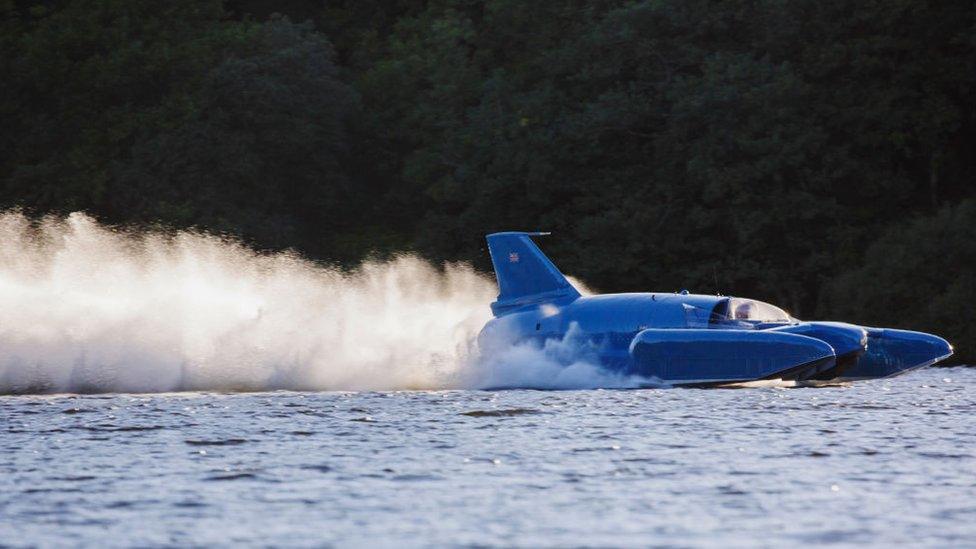
A restored Bluebird ran at Loch Fad on the Isle of Bute in 2018
Donald Campbell's record-breaking Bluebird "will run" again on water if possible, museum bosses have said.
The hydroplane has been at the centre of a years-long ownership row after being lifted from Coniston Water in 2001 and restored by Tyneside engineer Bill Smith.
Last week it was announced the craft would be returned to the Lake District.
Mr Campbell was killed in 1967 attempting to set another water speed world record on the lake.
His daughter, Gina Campbell, gifted Bluebird K7's wreckage to Coniston's Ruskin Museum in 2006 on the understanding that Mr Smith would restore it at his workshop in North Shields, North Tyneside.
He went on to claim a stake in its ownership leading to a stand-off with Ms Campbell and the museum, which launched legal action in a bid to enforce its return.
'Need to get her back'
On Friday the museum revealed an agreement had been reached, with Mr Smith telling the BBC he had "decided to walk away".
Once returned, it is understood experts enlisted by the museum will conduct an assessment of Bluebird's condition.
Posting on Facebook, it announced: "We have always said we will run K7 but we need to get her back before we can start making plans."
Asked whether such an outing would be on Coniston Water, it replied that once it had Bluebird in its possession it would apply for permission to the Lake District National Park Authority which would then consult lake users.
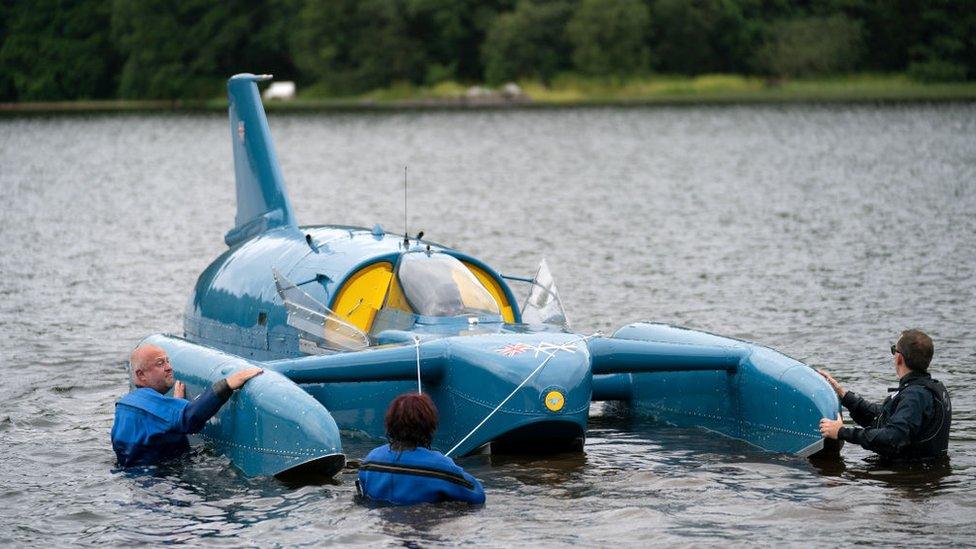
Bill Smith (left) says he decided to "walk away" from the long-running dispute
Bluebird previously returned to the water in 2018 when Mr Smith and his team of Bluebird Project volunteers launched the craft at Loch Fad on the Isle of Bute in Scotland.
Its current engine is on loan from a third-party and will be removed before the museum takes possession of the hydroplane in the coming weeks.
Last year the Ruskin revealed it had received a total of three Orpheus jet engines as donations, which it said could be fitted once modified by its engineering partner WEC Group Ltd.
It is understood Bluebird would spend most of its time on static display in the museum's dedicated wing.
Mr Smith described the craft as being "in first-class condition" and said it would "run at the push of a button" with its current engine.
But he warned the museum would face "an uphill struggle" without the involvement of his volunteers and their years of knowledge.
He previously called for his team to be able to run it for three months each year, and had proposed visits to Australia and the United States.

Follow BBC Cumbria on Facebook, external, X (formerly Twitter), , externaland Instagram, external. Send your story ideas to northeastandcumbria@bbc.co.uk, external.
Related topics
- Published9 February 2024
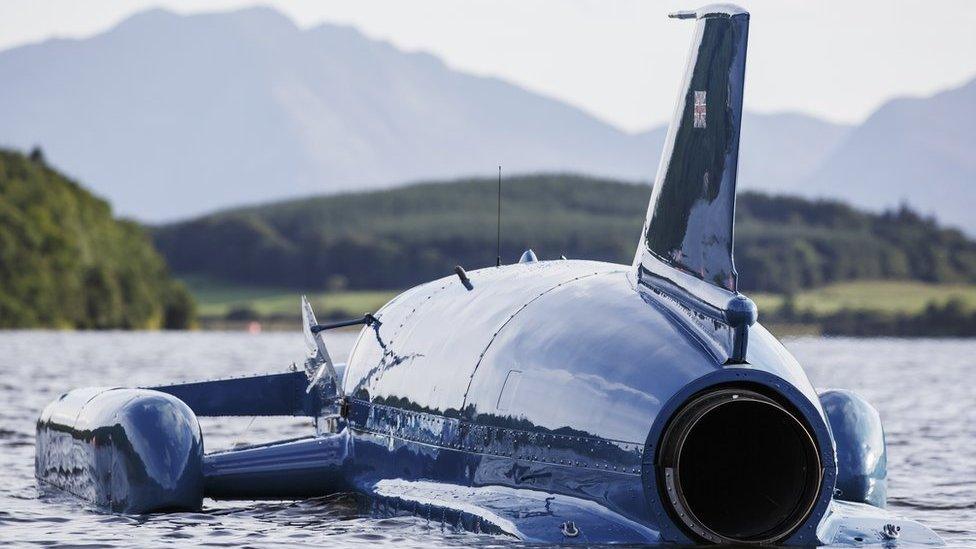
- Published19 September 2021
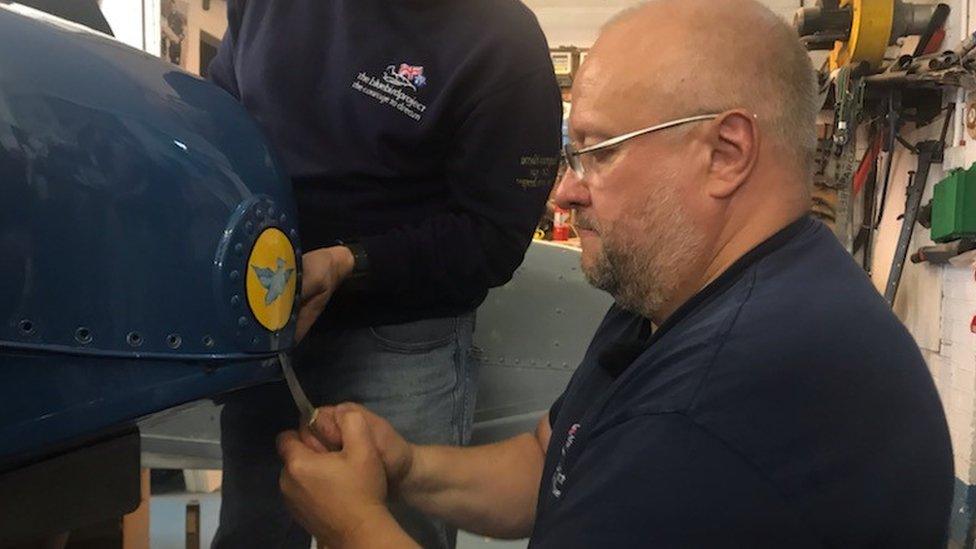
- Published14 August 2021
